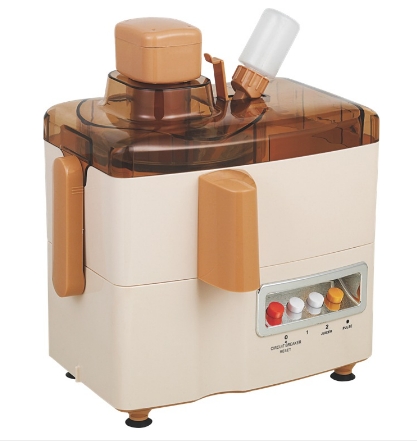The Kitchen Appliance market is being revolutionized through the fusion of IoT (Internet of Things) technology and smart home systems in food processors. These advancements are not only enhancing convenience and efficiency for consumers but also driving significant growth and innovation within the industry.

Smart Food Processors Emergence
Advanced features enabled by IoT technology in smart Food Processors facilitate connectivity with other smart home devices thereby providing a smooth cooking experience for users. Through smartphone applications, these gadgets can be controlled remotely allowing consumers to initiate, halt or monitor food processing from wherever they are located. In fact, such connections facilitate constant updates as well as troubleshooting processes that keep it running at its optimal state.
Enhanced User Experience
One of the main advantages of using a smart food processor is improved user experience. Such appliances often come with pre-set modes on their interface for tasks like chopping, slicing, grinding blending kneading among others. One can use a touch screen or an application in their handset to select the desired functionality making cooking more instinctive and less laborious than one might initially think. Also, real-time feedback may be given by these gadgets that help navigate through complex recipes leading to consistent results.
Data & Personalization
IoT integration lets intelligent food processors collect information about users’ habits and preferences. This personalized approach allows recipes based on ingredients commonly used by an individual or dietary restrictions mentioned to become available when needed most. Consequently, after some time has passed, the device will have learnt what an individual wants specifically improving performance as well as energy consumption rates automatically depending on set criteria. Thus by satisfying users’ needs better while ensuring frequent usage, personalization assists to improve this product’s overall rating.
Sustainability & Efficiency
Smart food processors promote environmentally friendly practices as well as efficiency in our kitchens today. By accurately measuring ingredients and optimizing processing times these machines help mitigate both energy wastage and food spoilage. Apart from that, regular maintenance notifications are possible so as to prevent any cases of appliance inefficiency or breakdowns in the long run. Furthermore, remote software updates eradicate the need to upgrade hardware thus allowing for constant growth in terms of performance while improving on features.
Market Growth and Future Trends
The market for smart food processors is expected to grow significantly over the next few years due to increasing consumer demand for smart home devices that enhance ease of use. Leading brands are putting a lot of money into research and development to include features like voice control and compatibility with virtual assistant. These improvements will make these appliances even more user-friendly and smarter thereby integrating them well within our modern kitchen designs.
Conclusion
The incorporation of IoT and smart home technology into food processors has changed how we approach cooking. The convenience, customization, and efficiency that come with these intelligent devices have made them very popular among consumers. Continuing technological advancements may yield more innovative features leading to further growth in this market thereby reshaping future prospects concerning our kitchens at home.
 WhatsApp:
WhatsApp: Mobile Phone:
Mobile Phone: Contact Now
Contact Now